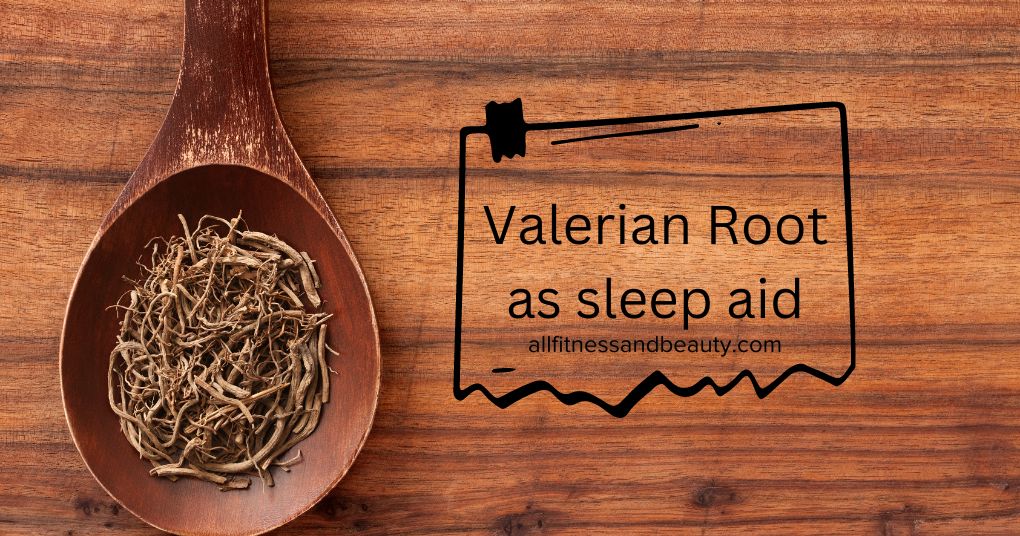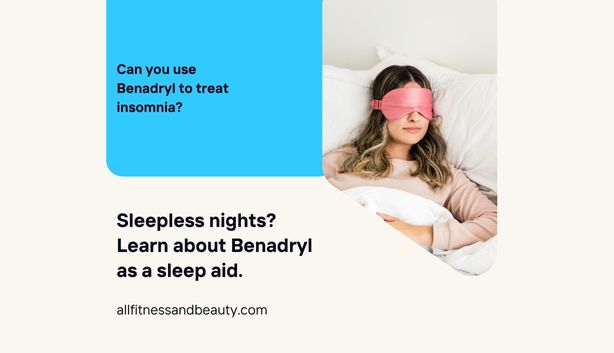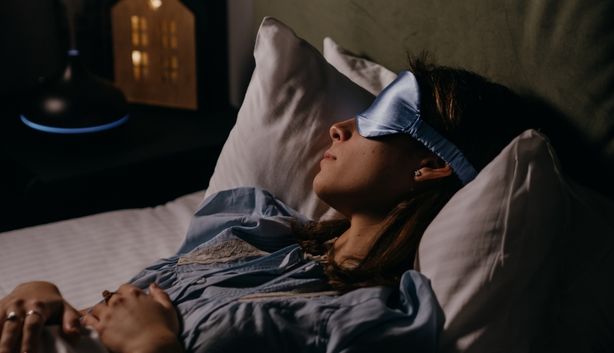Can Sleep Aids Cause Dementia?

Some American adults are not sleeping enough. Some of them might have slept for only three hours a night. That’s why they are seeking safe sleep aids. But they are wondering, “Can sleep aids cause dementia?”
If you’re the type of person who struggles to sleep well at night, then you might reach out for OTC sleep aids with a sedating effect. But will they affect your long-term memory?
Let’s find out here.
Related: Is it Bad to Take a Sleep Aid Every Night?
Can Sleep Aids Cause Dementia?
There are different sleep aids available on the market. Some of the popular ones contain an antihistamine. Unfortunately, an antihistamine is associated with an increased risk of dementia.
However, it is important to remember that the studies are focused on anticholinergic drugs. These are drugs that block a neurotransmitter in the brain involved in memory and learning.
Most adults use sleep aids that contain these components. For instance, they drink Benadryl and Dramamine. They are anticholinergic drugs.
Even though they are safe to use for the short term, using them for an extended time will only boost your risk of developing long-term memory loss, like dementia.
Although they are safe OTC meds, it does not necessarily mean that they are safe for long-term use.
Instead of using these sleep aids, you can choose to use safer alternatives that can effectively aid you in getting enough sleep without boosting your risk of dementia.
If you are taking these medicines, you might experience trouble in your reasoning. But when you stop using them, you might find an improvement in your reasoning.
Related: Is aromatherapy safe during pregnancy as a sleep aid?
Does Melatonin Increase the Risk of Dementia?
Melatonin supplement is one of the natural sleep aids advertised on the market. It is a natural sleep aid that won’t increase your risk of dementia.
What this sleep aid does is that it stimulates the production of melatonin. It is a hormone produced in the pineal gland. It regulates your body’s circadian rhythms, like your sleep-wake cycle.
At bedtime, melatonin is at its highest level.
How does it work? It works in improving your sleep by decreasing the time it takes for you to fall asleep. It also increases your feelings of sleepiness while increasing your sleep duration.
This is one reason it is popular among people who travel. It is a supplement that reduces your feelings of jet lag.
However, even though it is a natural sleep aid, this dietary supplement is not regulated. It is also not tested for long-term use in humans.
Some people experience grogginess and depression after taking this supplement. Others fall asleep quickly but they are awakened in the middle of the night.
Taking up to .3 mg of melatonin can be enough.
What are the Other Natural Sleep Aids to Use?
Valerian Root
This tea is one of the leading natural supplements that can help you manage your anxiety and insomnia. Although there is not enough proof to conclude that it is an effective sleep aid, there are people who could vouch for it.
It is an herbal extract that can reduce the time you need to fall asleep. It may also help in improving your sleep quality.
Unlike OTC sleep aids, most people don’t experience morning grogginess.
Valerian is well-tolerated for up to six weeks. Some people experienced headaches or a hangover after drinking valerian tea.
Thankfully, there are no reports of drug reactions with this type of natural sleep aid. However, you shouldn’t take it with alcohol because valerian is known to induce sleep. Thus, if you take it with alcohol, you may feel dizzy, drowsy, and have difficulty concentrating.
Related: Stress and insomnia
Chamomile
It is a popular herbal sleep remedy. It has been around for thousands of years.
Chamomile has anti-inflammatory properties that can soothe your mind to sleep. It is best taken as tea.
You can take Roman chamomile or German chamomile. But both types offer a calming effect that can help you feel relaxed while you are getting ready for sleep.
However, because it is a natural sleep aid, there’s not enough evidence to say and recommend that it is effective in treating your insomnia.
Still, it is worth it.
Weighted Eye Mask
This one is something that you don’t need to take. But it still offers a lot of benefits if you want to get some sleep.
What it does is that it gives you a pitch-black sleeping environment. This is one vital thing to help you fall asleep.
Keep in mind that if you are exposed to artificial light in the evening, it can disrupt your circadian rhythm, thereby, interfering with your sleep quality.
This mask will block out any artificial and natural light. As a result, it lets your pineal gland produce melatonin. It also creates total darkness that is useful for shift workers.
Another great thing about this sleep aid is that it helps you get a deeper, longer night’s sleep. This is vital because some sleep aids do help you fall asleep but they won’t give you longer sleep.
With sleep masks, your REM sleep will increase while shortening your REM latency.
The weighted eye mask will provide you with sleep-enhancing benefits by giving you southing pressure to the face. Doing so will trigger mood-boosting hormones that can fight against the effects of cortisol.
Keep in mind that if your cortisol is too high, it increases your alertness at night resulting in insomnia. With a high-quality eye mask, you can fall asleep deeper and give you a restorative sleep.
Another great thing about this mask is that it enhances relaxation. Thus, if you struggle with anxiety, this mask can be your new best friend. It can potentially offer a relaxing effect.
You can also pair it with a weighted blanket, which also offers a calming environment to signal your brain that it is time for you to close your eyes and fall asleep.
But this is not just for falling asleep. Rather, this is also great for relieving your headaches and migraines.
Because it is not an OTC sleep aid, you can safely use it without worrying you get dementia from using it.
Sleep Aids and Memory Loss
If you don’t get enough sleep, your memory will falter. Unfortunately, if you have difficulty sleeping, you may need some sleep aids. Can sleep aids cause dementia? As this post states, some sleep aids increase the risks of long-term memory. That’s why we recommend using natural sleep aids, like this weighted eye mask. You can get it here with FREE shipping worldwide.





Leave a comment